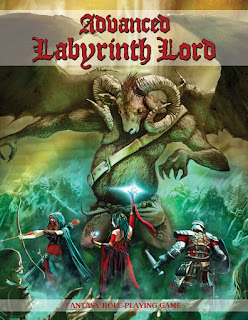Corporatism.
You see this everywhere, from Wizards to Games Workshop.
When the games we enjoy become "Wall Street Money Makers," they cease to be our games anymore, and they become a way for a billion-dollar corporation to insert corporate control into your life. You don't own these ideas! We do! And you must pay!
You can almost smell the ink on the whiteboards at this point.
How do we increase monetization?
- Release new rules!
- Put them under a strict license!
- Create a monetization portal!
- Microtransactions!
- Subscription portal content!
- Design the rules to require character builders!
- Forbid creating those in the new OGL.
- Keep popular build options out of the SRD/OGL!
- Heavily license 3rd party content!
- Barriers to market entry!
- Royalties!
- Use social media to stigmatize holdouts and people who play "other" games.
They don't say that last part, but a few paid influencers will get the ball rolling there. Stigmatization can mean saying things like, "You won't have anyone to play with," or touting "the industry leader," as well as outright mockery of people who are a bit different than what you like. And the crowd will follow along.
Diversity and inclusion include people who like different games than what you like. Even people who choose to play them differently or who choose and strongly identify with older versions of the game.
When I wrote the B/X Mod article discussing using SRD 3.5 feats with any B/X game, it hit me, and even in some non-mainstream games, you get this "designer hubris" going on. Don't modify the rules! We carefully balanced this! You take all responsibility for your own homebrew modifications! You know you won't be able to play this on a VTT! You will live alone and with cats if you change the rules!
Granted, this is also how most 5E players play, as everyone has house rules! From what I hear, house ruling is everywhere. And some great third-party books can enhance your game.
But I get the feeling with "One" way to play the game in the next edition, these days are coming to an end. We will have an officially supported VTT with the rules baked in. If you are playing that "old" edition, you are hurting the game and reducing the player base.
With the OSR, I can play any flavor of an OSR game and, with trivial effort, play at any table. The rules changes between editions are often flavor calls, and better yet, in the OSR, the game is truly yours.
You could even write your own if you want.
You can house rule all you want.
If I tell people, yeah, I allow D&D 3.5 feats, one every two levels, people who play will be like, "cool," or "that is an interesting way to play," or even "you do you." Even if they think it is silly and power gaming, I am not "hurting the game" if I choose to play this way.
It is "my thing."
And it is supported.
And better yet, if someone wants to take this idea and roll it into a new version of B/X, it is cool too.
All of us own this idea.






















